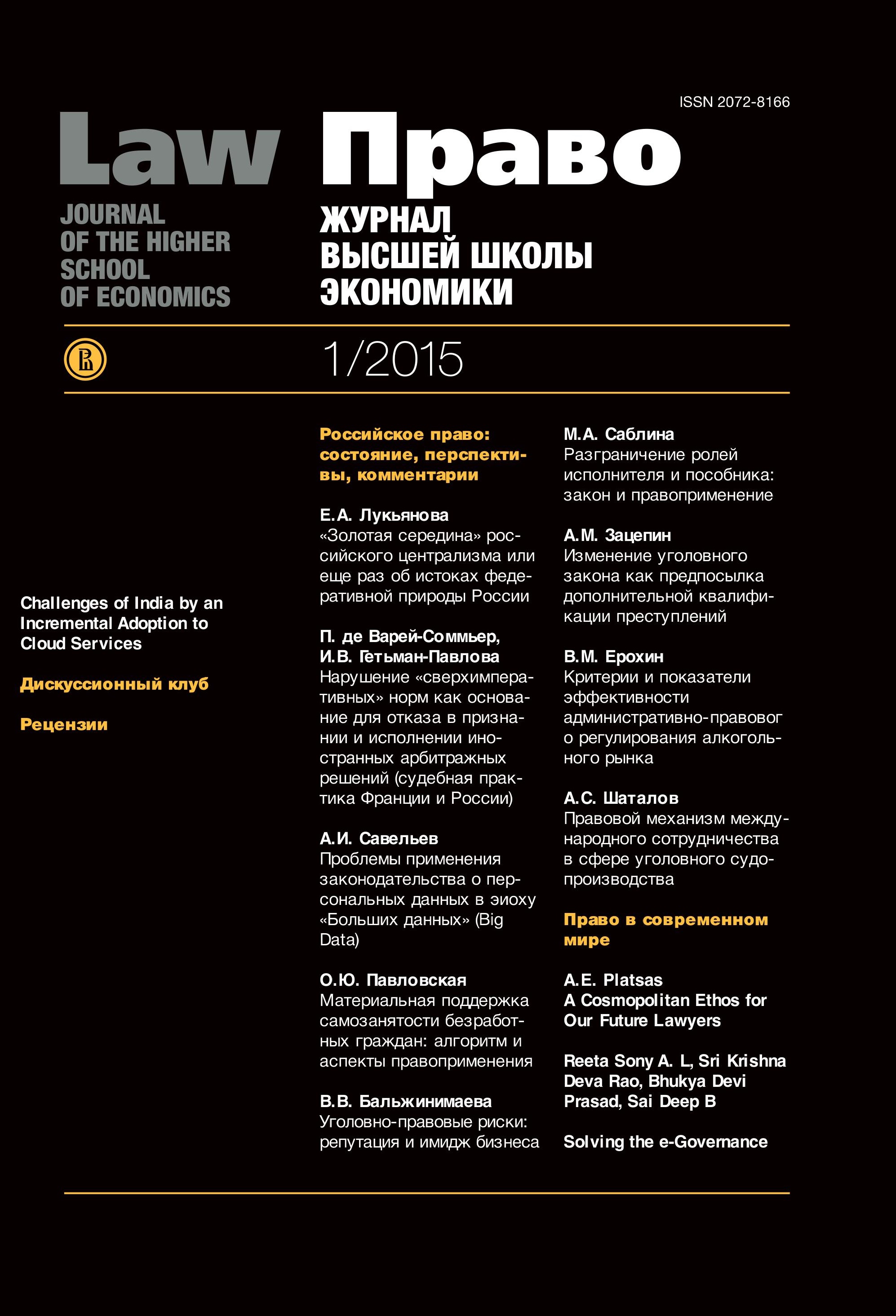Differentiating a Сrime Committer and Accomplice: Legislation and Law Enforcement
Abstract
The paper is devoted to the question of crime committer and assisting offender activities distinction in the interpretation of the current criminal legislation and judicial practice, accumulated over the last twenty years.
An examination of the Special Part of the Criminal Code articles is made as to the compliance with the general provisions on complicity. The empiric basis consists of the cases on crimes against human life and health, sexual inviolability and sexual freedom of the person; against property; against public security, human health and public morality; ecological crimes and crimes related to bribery court practice.
The article covers the key documents of the Russian Federation Supreme Court containing clarifications on the question of differentiating the crime committer and assisting offender roles. The article analyses judicial acts containing ambiguities, generating discussion in academic community and the lack of uniformity in enforcement practice. The paper contains a case selection which sets out the courts position different from the Supreme Court clarification.
A particular attention is paid to the federal law Art. 205, added to part 3 of the Criminal Code, which stated abetting in terrorism as an independent crime, and to the state authorities positions, set out in the reviews to the draft. This law has set the tendency to confuse the concepts of crime committer and assisting offender concepts at the legislative level. The tendency was continued by the addition to the Criminal Code Art. 291 ‘Mediation in bribery’. There is also the analysis of the draft laws which are currently under consideration in the State Duma. In case of their adoption abetting in some crimes committing will be recognized as independent crimes and persons committed these crimes will be recognized as crime committers.
The author notes that the Supreme Court is often beyond the permissible interpretation and its position is an application of the law by analogy but not the explanation. The author supports the proposal to make the p. 5 Art. 33 of the Criminal Code activities list open to avoid difficulties with this rule application. In general, the author concludes that there is a tendency to blur the distinction between the crime committer and assisting offender roles, lack of uniformity in judicial practice and calls for the development of the general provisions on complicity in the General Part of RF Criminal Code.





